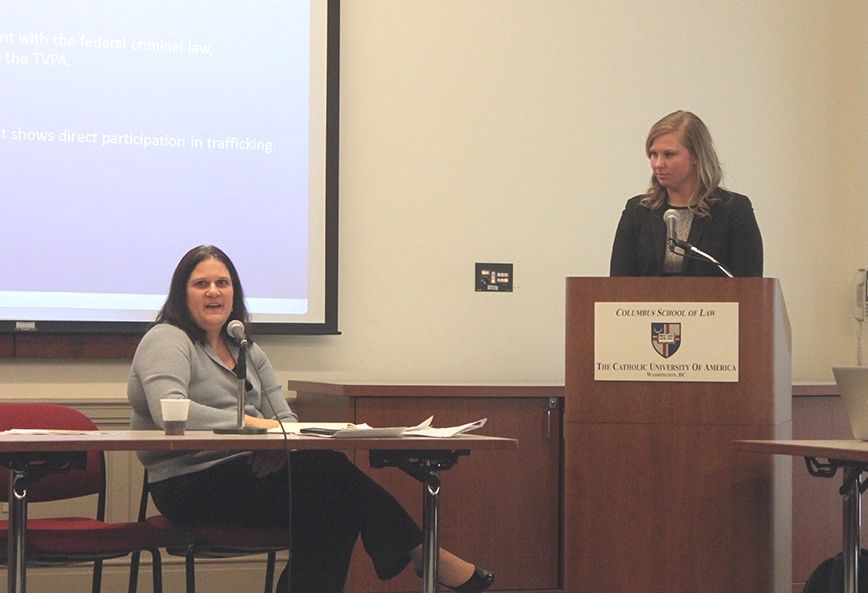
The Communications Decency Act (CDA) was hotly debated before its eventual passage in 1996, in part because Congress's first attempt to regulate pornography on the Internet raised difficult Constitutional questions about the reach, and limits, of the First Amendment.

Nearly 20 years later, one of the law's unfortunate aftereffects, according to Catholic University third-year law student Erin Callahan, is the legal continued existence of the adult pages of Backpage.com, a web site that carries advertising for the sexual trafficking of children and minors. Delivering the second Student Scholars Series lecture of the 2014-15 academic year on Feb. 25, Callahan's presentation, "State Laws and the Fight against Child Sexual Exploitation on Backpage.com" made the argument that the adult section of Backpage.com should not be protected by the Communications Decency Act. Three states have tried and failed to pass laws curbing the web site. The main argument against state legislation is that Backpage.com, as an internet marketplace, falls under the protection of the CDA as an "interactive computer service," and that the enforcement would be an infringement on its First Amendment rights. A portion of the abstract from Callahan's paper refutes that view. …"The article argues that the First Amendment does not protect these specific acts because the postings are not strictly verbal speech, but are instead "speech acts" that are not covered under the First Amendment of the Constitution nor covered in the CDA… The CDA should be interpreted in a manner consistent with Congressional intent, which sought to curb the use of websites for child sexual exploitation." "It's pretty clear that's what these ads are doing. There's a certain terminology used in all of these ads," Callahan told the audience of fellow students, faculty, and staff members.

Yiota Souras, senior vice president and general counsel for the National Center for Missing & Exploited Children, served as respondent for Callahan's talk. Her questions probed for ways that regulators might differentiate between unprotected "conduct," as Callahan characterizes Backpage.com's adult listings, and protected free speech.
The Columbus School of Law Student Scholars Series was instituted in by Professor A.G. Harmon in 2009 both to recognize notable legal scholarship produced by members of the student body and to foster the skills associated with presenting and defending that scholarship in a professional conference-style setting. Callahan's presentation was the 20th so far in the series.
